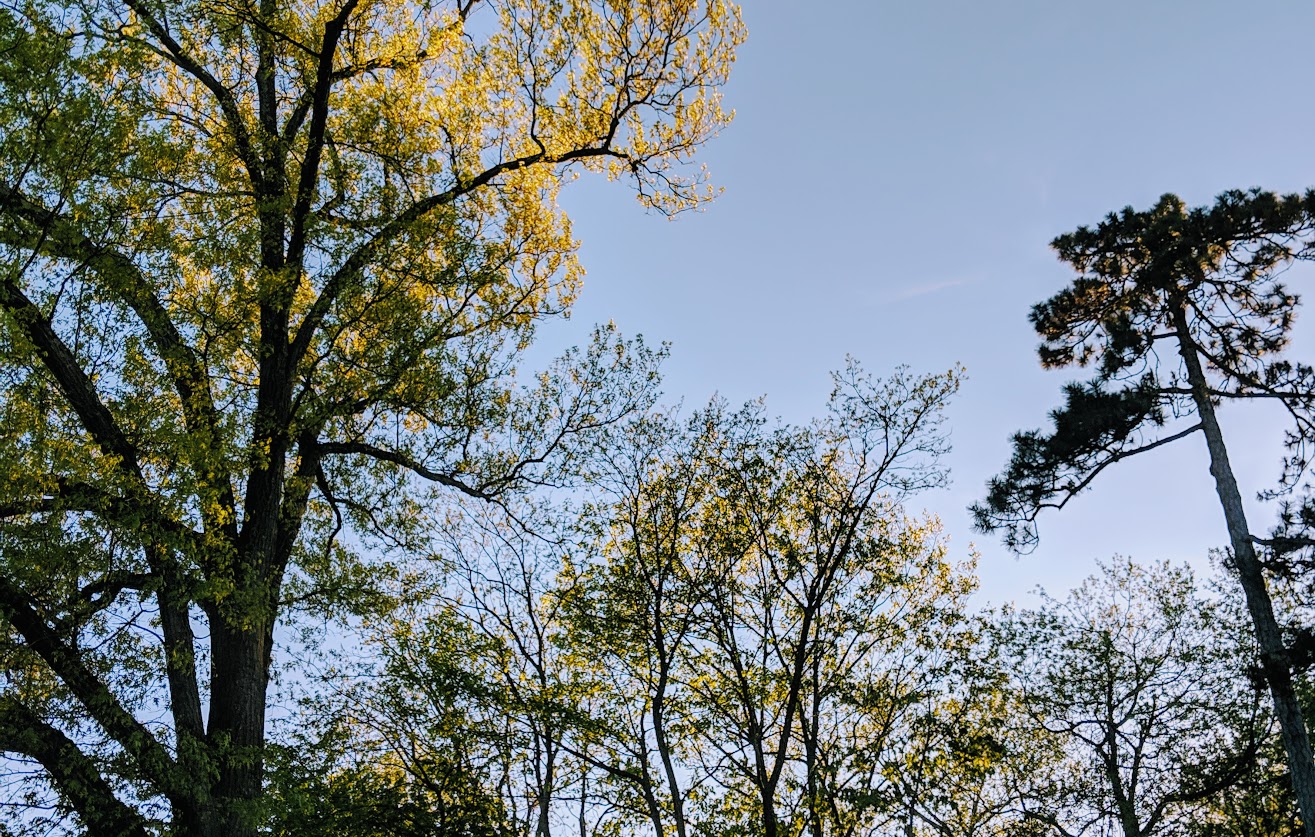
To All Friends Everywhere:
Greetings from a gathering of Philadelphia Yearly Meeting Young Adult Friends, together on Lenni-Lenape land at Haverford Friends Meeting for our spring retreat, April 26–28, 2019.
Issues surrounding our structures of membership have long weighed on the hearts of young adults—among others—in the PYM community. Among YAFs, it has never been a requirement to hold a formal membership affiliation in order to serve in clerking roles. While we were together, we made time to think through these concerns: to share our stories about membership and belonging, and to be in dialogue with our recently appointed presiding clerk, Chris Lucca. We know this exploration to be one of many, as Britain Yearly Meeting and New York Yearly Meeting have been grappling with similar questions on membership. Just across the road, our recording clerk was part of an intergenerational group at the Haverford Corporation, holding a simultaneous discussion.
Chris and Karen joined Eric Peterson, Jeff Rosenthal, Paul Sutherland, Young Adult Engagement Coordinator Meg Rose, Maeve Sutherland, Nora Griffin-Snipes, Catherine Campbell, Maura Wise, Eleanor Barba, Sophy Jarka-Sellers, Carl Stanton, and Rachel Griffin-Snipes for the conversation. We began with our individual relationships with membership, all of which have been shaped by our experiences as white Friends. While we seek here to highlight the way we see membership functioning to uphold exclusion in our Yearly Meeting, we know that we have all benefited from privilege, and cannot begin to speak to the experiences of Friends of Color. Amongst those in the room, we heard examples of the ways membership has both functioned and failed to function in lives of Young Adults. Some present shared an easy step into a meeting as adults, while some had never felt led to pursue membership, or had done so only to serve on a Yearly Meeting committee. One YAF told a story of offering three different affiliations (the YAF community; their childhood meeting, where their membership is formally recorded; and the meeting they most often attend) in a PYM business meeting, and being pressed by a recording clerk who wanted to place them in one single category of belonging. Above all, we demonstrated that a simple model of monthly meeting membership, in which one belongs to a singular community for life, is no longer useful, if it has been considered so in the past.
We collectively articulated a few key needs: in the life of our individual congregations, in Young Adult Friends, and in the Yearly Meeting. First, we are doing substantial work in all these contexts, to support all these bodies, and we need a structure to acknowledge and appreciate that work. Second, we need the governance of yearly meeting councils and committees to allow for our participation, despite the complexities of many Friends’ histories with recorded membership. Third, we need affirmation of the validity of our Quaker faith, not merely in spite of our transience and (relative) youth, but because we are a vital part of the PYM body, and we are struggling to be heard.
We asked the question: what is membership, actually? We appreciate its real value as a milestone, and as a shared, public commitment to Quaker life. In some cases, however, such as the requirement for committee service, membership can be devalued, turned into a mere check-box, without rooting in our spiritual journeys. In one past situation, a YAF nominated to be an elder valued their membership in their home yearly meeting too highly to be willing to give it up and check the box in Philadelphia. We place this hurdle to the detriment both of those wishing to serve amongst us, and to the body deprived of their service. Compared to many other religious communities, Quakers attain membership by a fairly arduous process, one that might look fundamentally different for Friends without privileges tied to race, class background, education, and underlying knowledge of Quaker ways. We invite Friends to distinguish between a bureaucratic form of membership, and spiritual membership, representing a faithful commitment. For some, the former is simply burdensome, and for others, especially those already marginalized, that burden makes our communities less accessible. When barriers of membership intersect with other ways voices are marginalized, they contribute doubly to maintaining a status quo that we know is failing.
We cannot create the diverse, inclusive, welcoming, beloved community that we all long for, while holding up structures that exist as checkboxes, simply because that is the way things have always been. This call to rethink bureaucratic membership may sound frightening in the abstract, and those present for our conversation heard and acknowledged that. But what rose among the group was the recognition that if we are being asked to serve on a committee or a council, it is because we have been seen and known, and because that of God within us has been at work. We understand Quaker process, in its most authentic form, to be a remarkable, radical concept. We trust that there is a Spirit guiding us, to which everyone in the room has access, and which, if heard, can guide us to Truth. When we can trust that our process reflects the Spirit, we will also be able to trust our nominations process, to bring the right people into the service of our community. We have a vision that belonging to the body can have its basis in contributions and relationships, not only in process for process’ sake. We wonder if membership could look more like asking, “How fares the truth with thee?” Friends can then hear, from all their multiple communities, “we know you, and the Spirit is within you, and we acknowledge you.”
In Spirit,
Young Adult Friends, Philadelphia Yearly Meeting